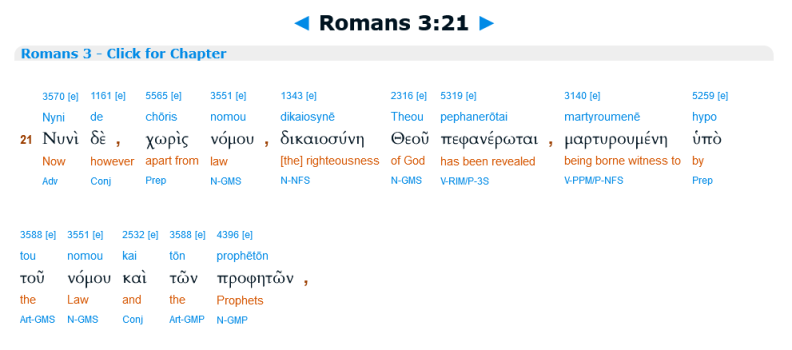Lizbeth
Well-Known Member
It's not complicated or confusing, so we shouldn't complicate and confuse it........ "without law" in both 1 Cor 9 and the Rom 2 passages is referring to unbelieving Gentiles who have neither the law of Christ nor the old covenant Law......"the law" in both passages is referring to Jews under the old covenant......which is often capitalized, though not always and not in these passages, as the Law. In 1 Cor 9 where Paul mentions God and the law of Christ, he is simply qualifying that becoming "as one without law to win those without law" doesn't mean he is going so far as to become as one who is law-less and sinful in God's sight, because he is under and obeying the law of Christ (new covenant).Yes.
But what law is that?
1) The law
2) The Law (capital L)
3) God's law
4) Christ's law
Definitions: (my working definitions)
1) The law = the law God gave to the Israelites alone through Moses (the laws, not the books)
2) The Law (capital L) = The Books of the Law, the Pentateuch. the Torah
3) God's law = the universal law written on human conscience (our heart)
4) Christ's law = the commandments Christ gave us
/
God's law is only written on the hearts of those who have received a new heart under the new covenant. (Jer 31 and Heb 8) The Rom 2 verses where it goes on to talk about Gentiles who by nature are obeying God's laws....is referring to believing Gentiles, having received a new nature and new heart, and conscience to go with it, not un-believing Gentiles. Unbelieving Gentiles were pagans, and not obeying God's laws. The main point and context of that passage as we can see, is about Jews with respect to Gentiles, that Jews having the Law doesn't give them an edge over believing Gentiles.
Rom 2:9-15
Tribulation and anguish, upon every soul of man that doeth evil, of the Jew first, and also of the Gentile;
But glory, honour, and peace, to every man that worketh good, to the Jew first, and also to the Gentile:
For there is no respect of persons with God. (in this context, with respect to Jew and Gentile)
For as many as have sinned without law shall also perish without law: and as many as have sinned in the law shall be judged by the law;
(For not the hearers of the law are just before God, but the doers of the law shall be justified.
For when the Gentiles, which have not the law, do by nature the things contained in the law, these, having not the law, are a law unto themselves:
Which shew the work of the law written in their hearts, their conscience also bearing witness, and their thoughts the mean while accusing or else excusing one another; )
(Many Jews sort of arrogantly thought they were in better standing with God merely by having and hearing the Law even though they weren't necessarily obeying it and being doers of it very well. As opposed to Gentiles who didn't have the Law. How I read these verses is that Paul was correcting that prejudiced mindset.)


